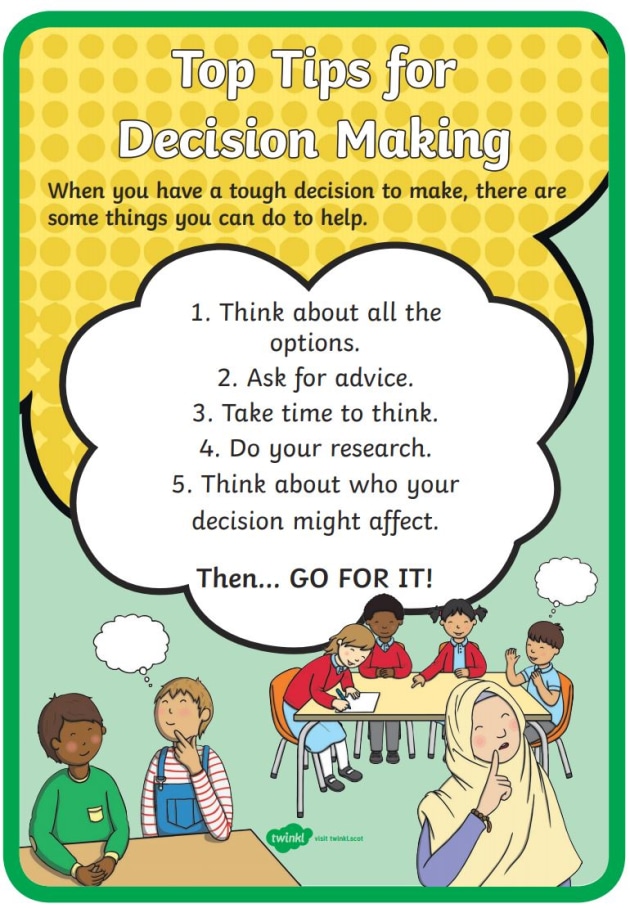Existence is replete with junctions, where each decision we make molds our journey and influences our future. Regardless of whether we face decisions in our private lives, professions, or relationships, mastering the art of effective decision-making is essential. This piece will examine numerous techniques and insights that can enable you to make improved choices, particularly under stress. By developing your choice-making skills, you can navigate life's challenges with confidence and clarity.
As we dig into the science behind great choices, you'll discover how to steer clear of common traps that result to bad choices. From understanding the role of intuition and feelings-based intelligence to investigating decision-making frameworks that work, we will equip you with practical resources to sharpen your process. Moreover, we will address the importance of awareness and analytical thinking in achieving sound decisions, ensuring you have the skills to analyze options effectively and select carefully in every situation. Join us on this path towards improved decision-making, and realize your potential to make choices that align with your goals and values.
Effective Techniques for Intelligent Decision-Making
Formulating intelligent decisions necessitates a blend of strategy and self-recognition. One useful technique is to develop a decision-making framework that steers your thought process. This framework can include clearly defining the challenge precisely, listing your alternatives, evaluating the advantages and disadvantages of each option, and evaluating the potential outcomes. By having a organized approach, you can steer clear of being overwhelmed by feelings or biases that may blur your choices.
Another important technique is to utilize the strength of pause. Regularly, spending a moment to consider before arriving at a decision can greatly enhance the standard of your choice. This pause allows you to connect with your instincts while also factoring in logical analysis. Individuals who employ this technique report experiencing more confident in their selections, as it gives them the opportunity to evaluate their options deliberately rather than speedily into a decision.
Finally, integrating emotional awareness into your decision process can result in better results. Understanding your feelings and how they impact your decisions is crucial. It can help you manage difficult situations where sentiments may be strong. By identifying emotional cues and assessing how they impact your options, you can make more fair and considerate decisions that reflect your values and long-term goals.
Conquering Obstacles in Making Decisions
Choosing often presents a number of issues that can obscure our judgment and lead to suboptimal decisions. One of the key issues is the overwhelming amount of alternatives available, which can cause analysis paralysis. When confronted with too many alternatives, individuals may struggle to take steps, worried that they might make the wrong decision. To combat this, it's important to set up specific standards for considering choices and limit choices to what's actually necessary, thus simplifying the process of making decisions and diminishing unnecessary pressure.
A further significant issue is the emotional dimensions of decision-making. Fear of choosing incorrectly can lead to stress and anxiety, which leads individuals to hesitate or avoid decisions altogether. Building emotional awareness can be vital here. By becoming aware of and regulating our feelings, we can arrive at more rational choices and stay centered on the data instead of being distracted by concerns. Additionally, using mindfulness strategies can boost our focus, allowing us to tackle decisions with a more composed mindset.
In conclusion, the group dynamics surrounding decision-making can also add difficulties. Whether in collaborative situations or when taking into account the views of others, the desire for consensus can sometimes inhibit taking action. To overcome this problem, it's important to create an environment that facilitates open discussion while also honoring individual input. Utilizing formal decision-making processes can enhance teamwork and help groups come to an agreement faster without sacrificing the value of the choice. By tackling these obstacles head-on, individuals can enhance their decision-making skills and realize more favorable results.
The Role of Instinct and Feelings in Decisions
Intuition often plays a crucial role in choosing, serving as an internal compass that guides people based on their experiences and instincts. When faced with decisions, many find themselves relying on gut feelings, which can be incredibly valuable. This intuitive response is a product of unconscious processing, drawing from past experiences, knowledge, and feelings. Understanding when to trust this instinct can enhance decision-making effectiveness, especially in situations lacking clear data.
Feelings also significantly influence the choices we make. While some individuals may strive to handle choices with a purely logical mindset, feelings can bias our judgments, often leading us to favor immediate emotions over long-term gains. Recognizing how emotions affect decision-making can aid in developing a more balanced method. For example, nervousness may lead to inaction, while self-assurance can spur action. Developing emotional awareness allows people to navigate these dynamics and make choices aligned with their principles and goals.
Ultimately, effective decision-making involves a delicate balance between intuition and feelings. Striking the right balance can lead to more thoughtful and satisfying decisions. By integrating intuitive insights with awareness of emotions, individuals can develop a holistic choice-making framework that resonates with both their intuitions and rationality. This integration not only fosters better outcomes but also builds resilience in the face of complex situations, enabling individuals to embrace the nuances of decision with greater assurance.

